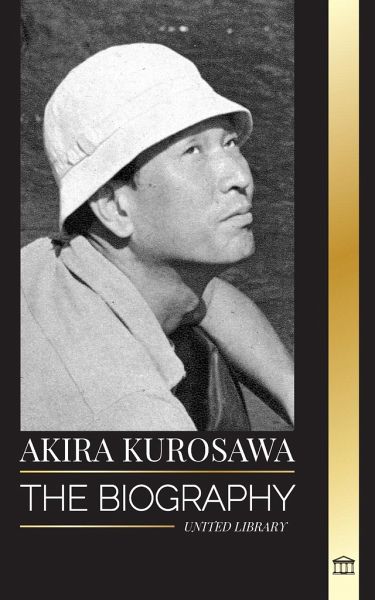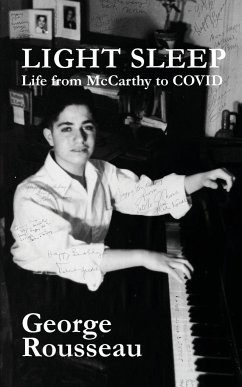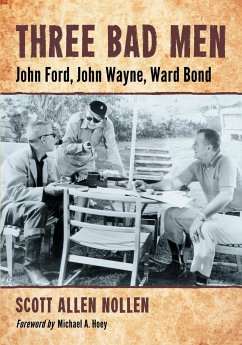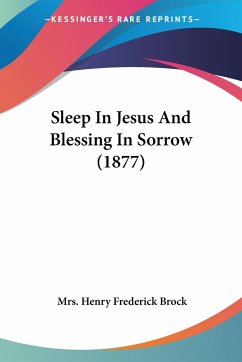Nicht lieferbar

Akira Kurosawa
The biography of a Japanese filmmaker, painter and her cinema legacy
Versandkostenfrei!
Nicht lieferbar
Embark on a cinematic journey through the life and legacy of Akira Kurosawa, the acclaimed Japanese filmmaker and painter, in this comprehensive biography. Born on March 23, 1910, Kurosawa left an indelible mark on world cinema, directing 30 films over five transformative decades. Widely hailed as one of the greatest and most influential filmmakers in history, Kurosawa's bold and dynamic style, influenced by Western cinema yet uniquely distinct, resonated across cultures. Entering the Japanese film industry in 1936 after a brief stint as a painter, Kurosawa's directorial debut during World War...
Embark on a cinematic journey through the life and legacy of Akira Kurosawa, the acclaimed Japanese filmmaker and painter, in this comprehensive biography. Born on March 23, 1910, Kurosawa left an indelible mark on world cinema, directing 30 films over five transformative decades. Widely hailed as one of the greatest and most influential filmmakers in history, Kurosawa's bold and dynamic style, influenced by Western cinema yet uniquely distinct, resonated across cultures. Entering the Japanese film industry in 1936 after a brief stint as a painter, Kurosawa's directorial debut during World War II, "Sanshiro Sugata" (1943), set the stage for his illustrious career. "Drunken Angel" (1948), featuring the then little-known actor Toshiro Mifune, solidified Kurosawa's reputation. Their collaboration spanned fifteen films, creating cinematic masterpieces like "Rashomon" (1950), which won the Golden Lion at the Venice Film Festival, opening Western markets to Japanese cinema. Kurosawa's prolific output during the 1950s and early 1960s includes classics such as "Ikiru" (1952), "Seven Samurai" (1954), "Throne of Blood" (1957), "Yojimbo" (1961), and "High and Low" (1963). Despite reduced productivity after the 1960s, his later works, including "Kagemusha" (1980) and "Ran" (1985), continued to receive acclaim. In 1990, he received the Academy Award for Lifetime Achievement, capping a career that transformed global cinema and earned him the title of "Asian of the Century" posthumously. Delve into the life and artistry of this cinematic maestro, whose influence resonates far beyond the screen.













